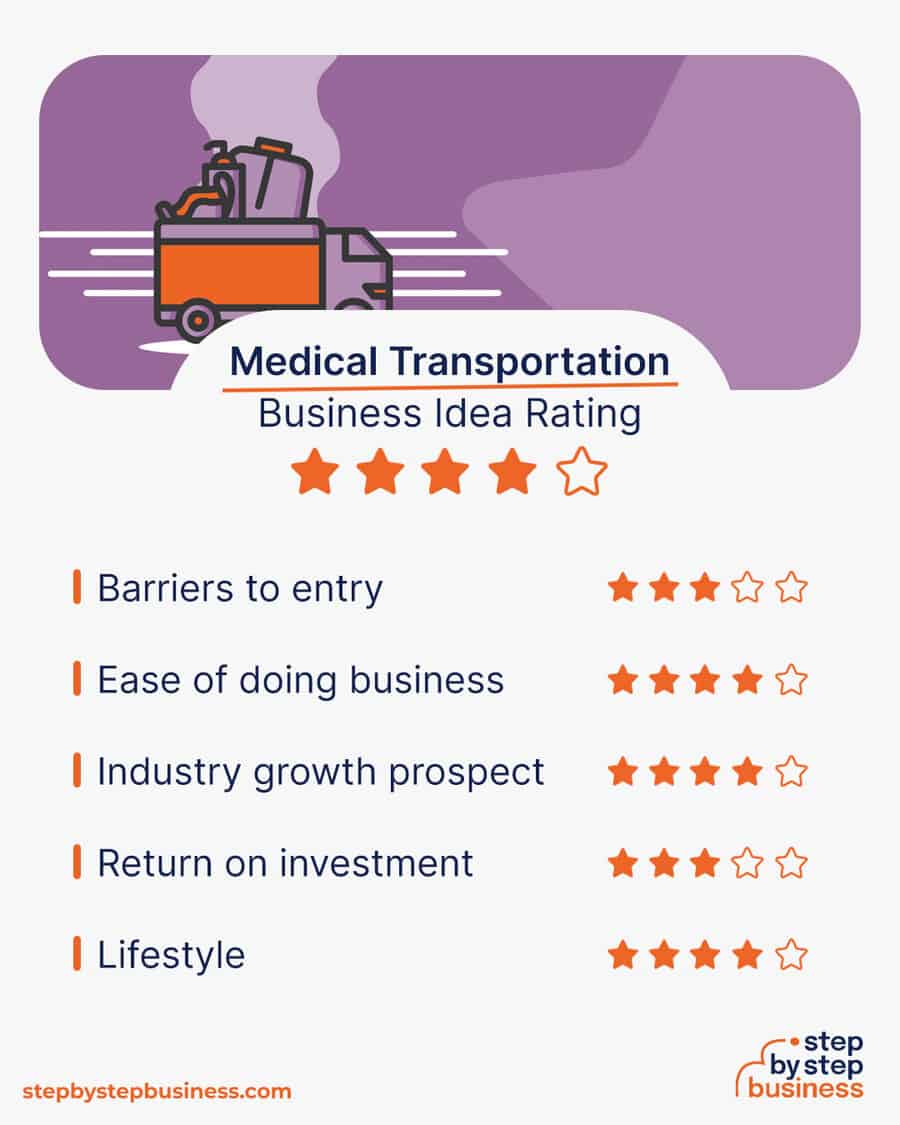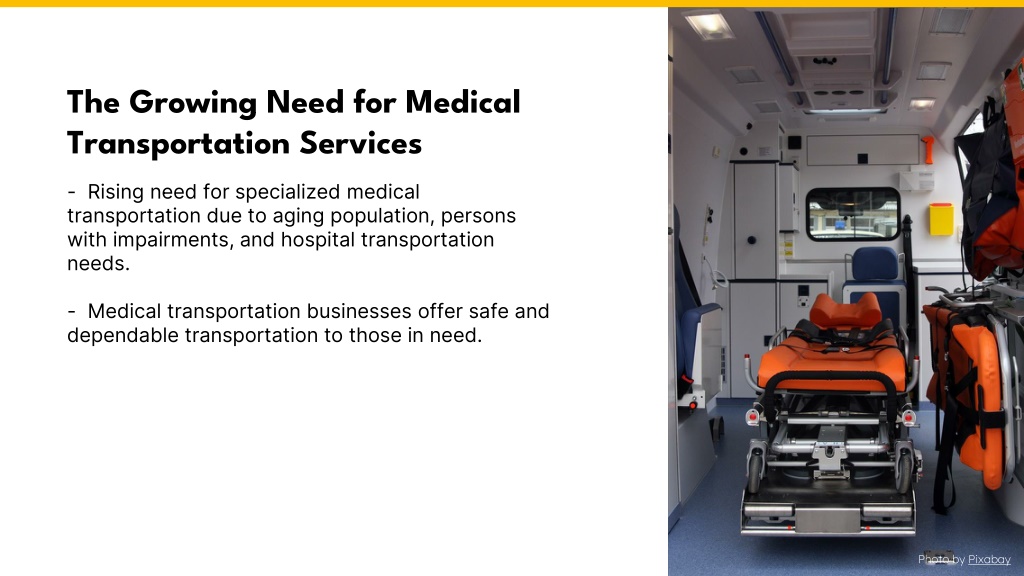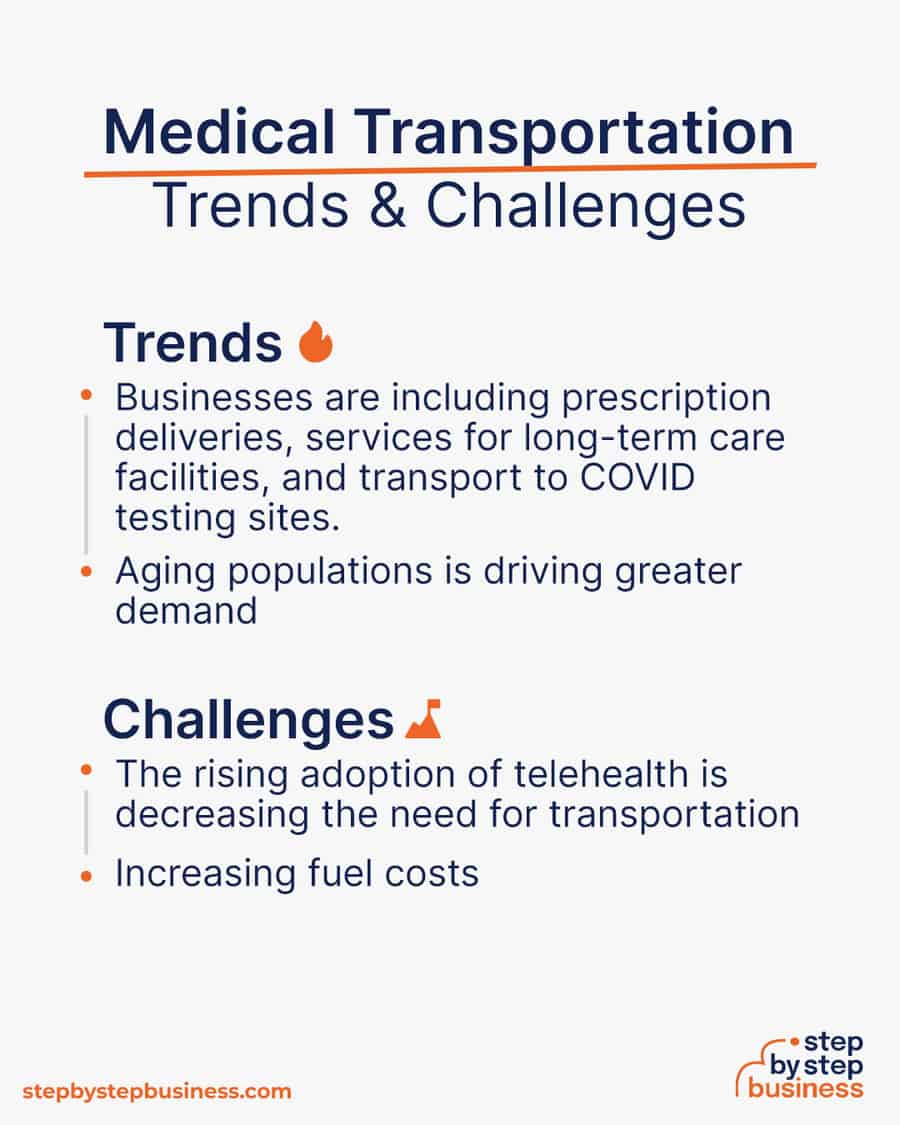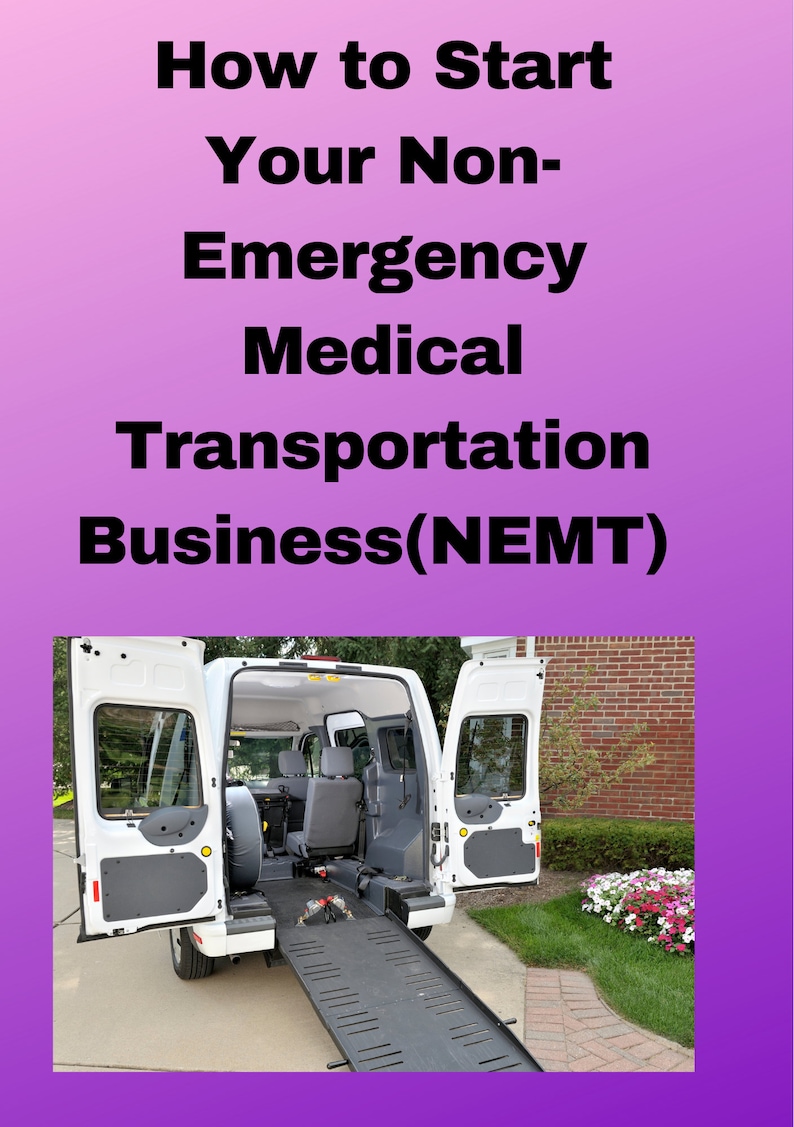How To Start A Medical Transportation Company
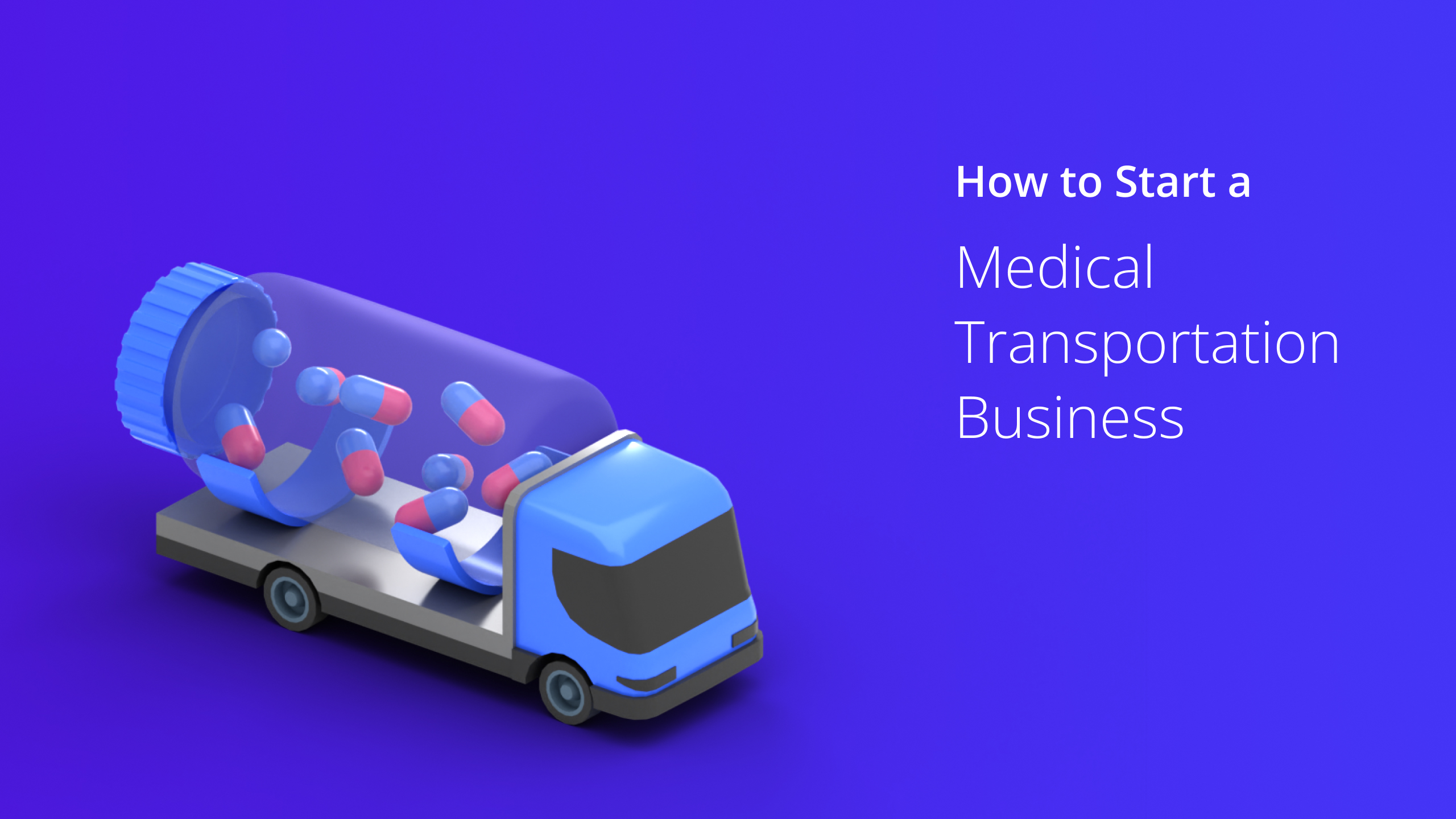
The aging population is growing, chronic illnesses are on the rise, and healthcare access remains a challenge for many. Amidst these trends, a critical yet often overlooked sector is emerging: non-emergency medical transportation (NEMT). Starting a medical transportation company presents both significant opportunities and considerable challenges, demanding careful planning, regulatory compliance, and a deep understanding of the needs of vulnerable populations.
This article delves into the intricacies of launching a successful medical transportation business. We will explore the key steps involved, from initial market research and business plan development to securing funding, acquiring the right vehicles, and navigating the complex regulatory landscape.
Understanding the NEMT Landscape
The non-emergency medical transportation industry caters to individuals who require assistance getting to and from medical appointments but do not need ambulance services. These individuals often include senior citizens, individuals with disabilities, and those with chronic conditions. Understanding this specific niche is crucial.
NEMT is typically utilized for routine doctor visits, physical therapy sessions, dialysis appointments, and other non-urgent medical needs. Market research is paramount before launching your company.
Assess the demand for NEMT services in your target area. Identify potential clients, such as hospitals, nursing homes, and assisted living facilities.
Crafting a Robust Business Plan
A well-structured business plan is the cornerstone of any successful venture. This document serves as a roadmap, outlining your company's goals, strategies, and financial projections.
Include a detailed market analysis, a description of your services, a marketing strategy, and a financial plan. Your financial plan should encompass start-up costs, operating expenses, and revenue projections.
Furthermore, it should address funding sources, such as loans, grants, or personal investment.
Legal and Regulatory Compliance
The NEMT industry is subject to a complex web of regulations at the federal, state, and local levels. Compliance is non-negotiable.
Ensure you obtain all necessary licenses and permits to operate legally in your area. This may include business licenses, vehicle permits, and driver certifications.
Familiarize yourself with HIPAA regulations regarding patient privacy and data security. Failure to comply can result in hefty fines and legal repercussions.
Insurance Requirements
Adequate insurance coverage is essential to protect your business from liability. Consult with an insurance broker specializing in the transportation industry.
You will likely need commercial auto insurance, general liability insurance, and workers' compensation insurance. Coverage levels should be sufficient to cover potential accidents and lawsuits.
Acquiring the Right Vehicles
The vehicles you choose will significantly impact the quality and efficiency of your NEMT services. Select vehicles that are reliable, comfortable, and accessible to individuals with mobility limitations.
Consider purchasing vans equipped with wheelchair lifts or ramps. Ensure that your vehicles meet all safety standards and are properly maintained.
Develop a regular maintenance schedule to prevent breakdowns and ensure passenger safety. Regular maintenance is non-negotiable.
Recruiting and Training Drivers
Your drivers are the face of your company. Hire individuals who are compassionate, reliable, and possess excellent driving skills.
Conduct thorough background checks and drug screenings on all potential drivers. Provide comprehensive training on passenger assistance, safety procedures, and customer service.
Furthermore, train drivers on HIPAA compliance and sensitivity towards the needs of elderly and disabled passengers.
Marketing Your Services
Effective marketing is crucial to attracting clients and building brand awareness. Target your marketing efforts towards hospitals, nursing homes, assisted living facilities, and community organizations.
Develop a professional website and social media presence. Consider online advertising, print advertising, and direct mail campaigns.
Networking with healthcare professionals and participating in community events can also generate leads.
Technology and Dispatch Systems
Implementing a reliable dispatch system can streamline operations and improve efficiency. Look for software that offers features such as scheduling, routing, and real-time tracking.
This technology can help optimize routes, minimize wait times, and improve communication between dispatchers and drivers. Technology adoption is vital for efficient operations.
Funding and Financial Management
Securing adequate funding is essential to launch and sustain your NEMT business. Explore various funding options, such as small business loans, lines of credit, and grants.
Maintain accurate financial records and track your expenses carefully. Consider hiring an accountant to manage your finances and ensure compliance with tax regulations.
Furthermore, monitor your cash flow closely and develop a contingency plan for unexpected expenses. According to the Small Business Administration, poor financial planning is a leading cause of business failure.
Challenges and Opportunities
The NEMT industry presents both significant challenges and exciting opportunities. Competition can be fierce, particularly in densely populated areas.
Reimbursement rates from Medicaid and other insurance providers can be low, impacting profitability. However, the growing demand for NEMT services offers considerable growth potential.
Adapting to technological advancements and evolving patient needs is crucial for long-term success. Embrace innovation and adapt to change.
The Future of NEMT
The future of NEMT is likely to be shaped by technological advancements and increasing demand for specialized transportation services. Telemedicine and remote patient monitoring are creating new opportunities for NEMT providers.
As healthcare becomes more personalized and patient-centered, NEMT companies will need to adapt to meet the unique needs of each individual. Investing in technology, training, and customer service will be essential for staying ahead of the curve.
By focusing on quality, compliance, and innovation, entrepreneurs can build successful and sustainable NEMT businesses that provide a valuable service to their communities. Innovation is key for future success.

